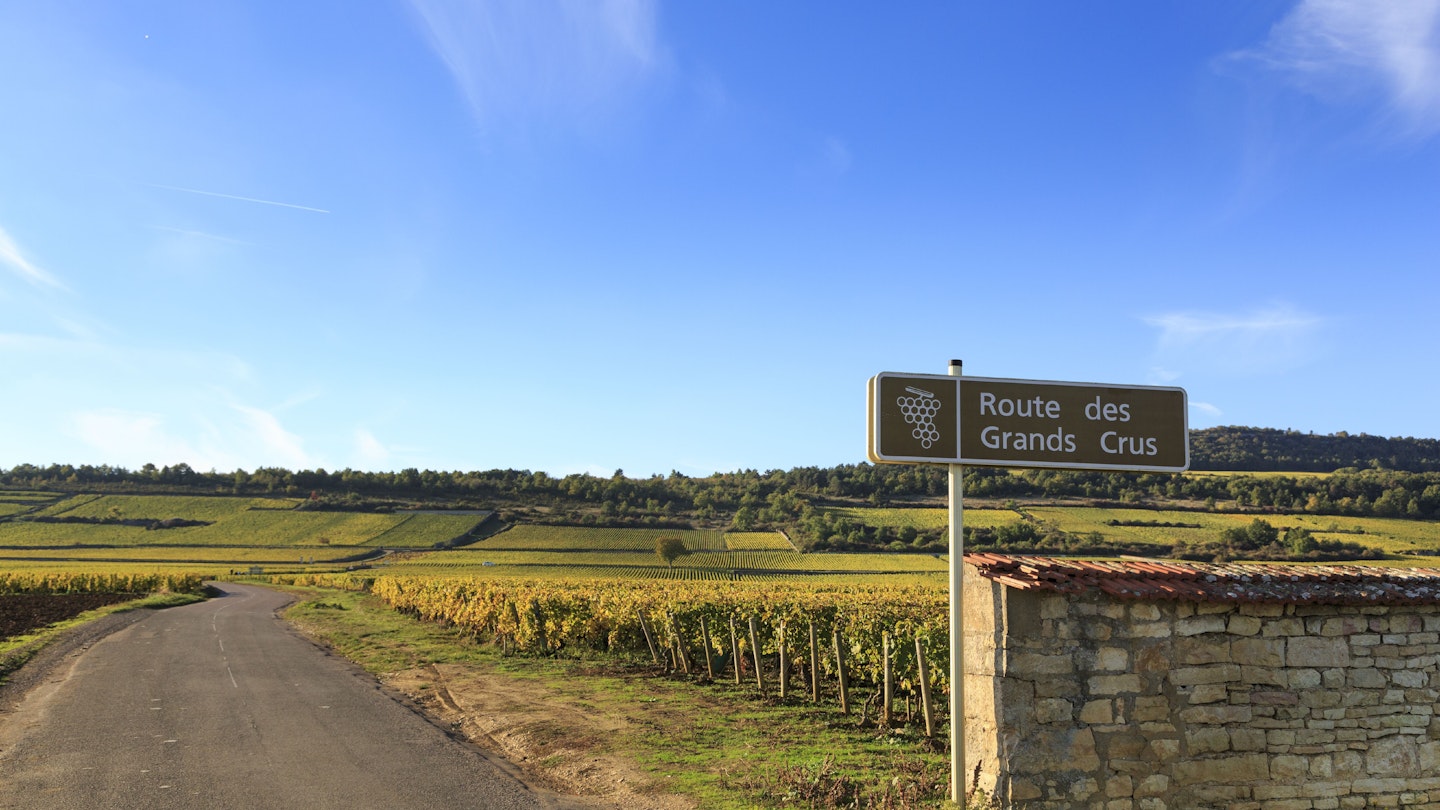Discover the Beauty of Burgundy, France
From historic estates cradling fabled chateaux to emerald hills draped in vineyards appreciated by passionate wine lovers globally, the region of Burgundy (Bourgogne in French) offers tantalizing food and wine, lyrical landscapes, and unrivaled cultural heritage. The Côte d’Or (literally “Golden Hillside”) stretches from Dijon, bursting with cultural riches, south to the wine town of Beaune and beyond, with many prominent wine villages such as Gevrey-Chambertin, Chambol-Mussigny, Chassagne-Montrachet, and Puligny-Montrachet along the way. This is one of France’s most famous wine regions, and following the Route des Grands Crus is the perfect method to explore it.
Burgundian Wines
Monks began producing wine in Burgundy way back in the medieval period, refining their craft over centuries. The region’s vignerons (winegrowers) manage small vineyards, often no larger than 10 hectares, yielding small quantities of high-quality wine. Burgundy reds are crafted from pinot noir grapes while the whites utilize chardonnay. Certain vintages benefit from aging between 10 to 20 years, while others are ready to enjoy within just one or two years.
The Route des Grands Crus
The region’s most celebrated wine route, the 34-mile-long (55km) Route des Grands Crus, winds through charming stone-built villages and steeple-topped churches, with the turrets of chateaux peeking above the verdant trees. This picturesque route generally follows secondary roads west of the D974, marked by brown signposts featuring a bunch of grapes.
Beginning at the northern edge of Côte de Nuits in Côte d’Or and progressing southwards, you enter the renowned Grand Cru country. Here, some of France’s smallest and most coveted appellations originate, crafted from the fertile vineyards nestled between Gevrey-Chambertin and Vosne-Romanée. In Vougeot, it is advisable to visit the historic chateau, a 16th-century country castle, to learn about the intricate winemaking process. Vosne-Romanée is known for its esteemed Romanée Conti wines, some of the most prestigious and expensive in Burgundy. As you continue southward, consider a visit to the Cassissium in Nuits-St-Georges to understand how the celebrated blackcurrant liqueur, crème de Cassis, is produced. Continue south to the Côte de Beaune and catch a glimpse of the dramatically steep colored-tile roof of Château Corton-André in Aloxe-Corton. The stunning village of Pernand-Vergelesses is nestled in a secluded valley off the D974.
One could easily spend several delightful days in Beaune, the charming medieval city serving as the unofficial capital of Côte d’Or, which houses some of the world’s most sought-after wines in cool, ancient cellars hidden beneath cobbled streets. The grand Gothic building adorned with multicolored tiles overlooking the central market square is the Hôtel-Dieu des Hospices de Beaune. This former hospital has been converted into a museum and charitable organization, hosting a prestigious wine auction each November.
South of Beaune, a visit to Château de Pommard is a must for tours and tastings to gain insights into the unique terroirs and the artistry of winemaking. A stroll through the delightful village of Volnay leads to its hillside church. Off the beaten path, St-Romain is a pastoral village located at the juncture of vineyards, pasturelands, forests, and cliffs. Excellent hiking trails emanate from here, including the breathtaking Sentier des Roches, a circuit that follows part of the GR7 and the D171 along the top of the towering Falaises de Baubigny (Baubigny cliffs), offering sweeping views 300m above the River Saône.
Lastly, enjoy spectacular vineyard vistas from the hillside hamlet of Orches before continuing to the magnificent 15th-century Château de La Rochepot, a medieval fortress complete with conical towers and colorful tile roofs rising dramatically from thick woods over the ancient village of La Rochepot. For a grand finale to your journey, venture to the villages of Chassagne-Montrachet and Puligny-Montrachet, where you can indulge in some of the world’s finest white wines.
This article was first published Feb 14, 2012, and updated Oct 8, 2021.




